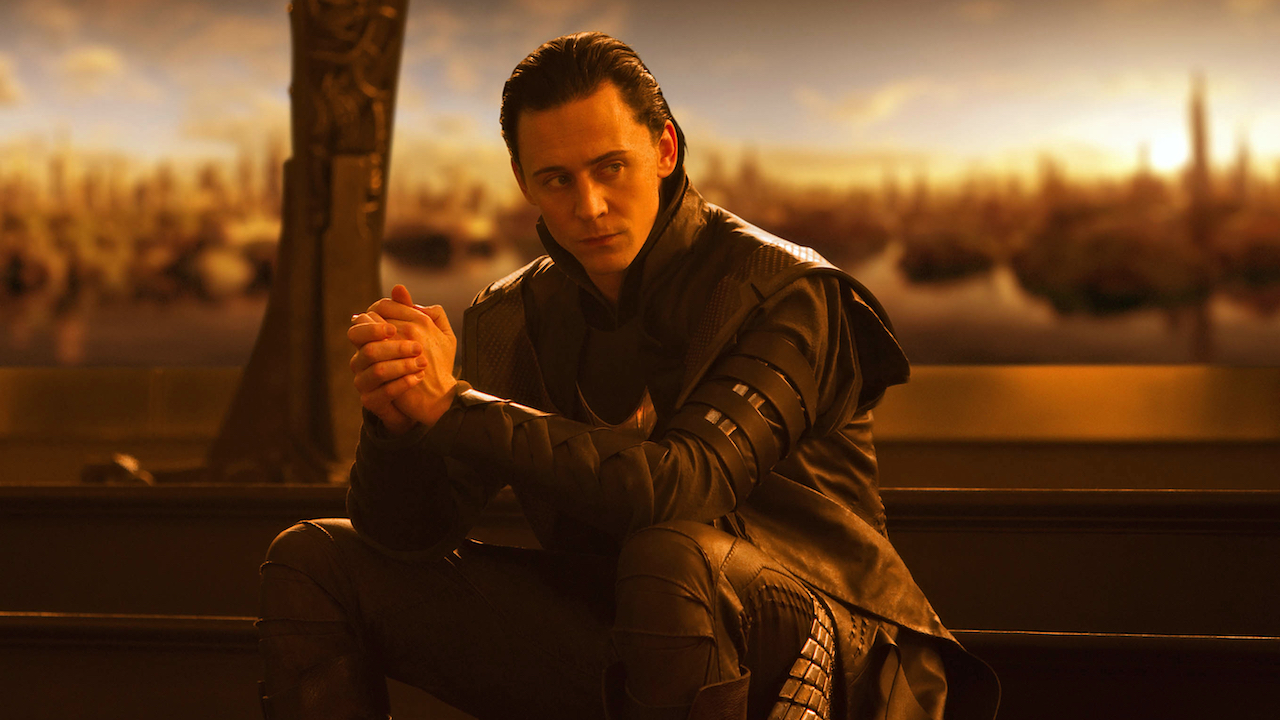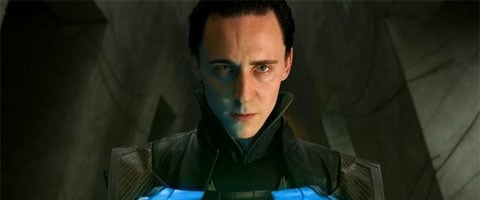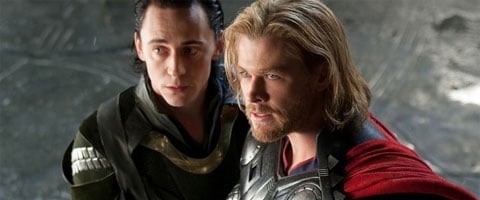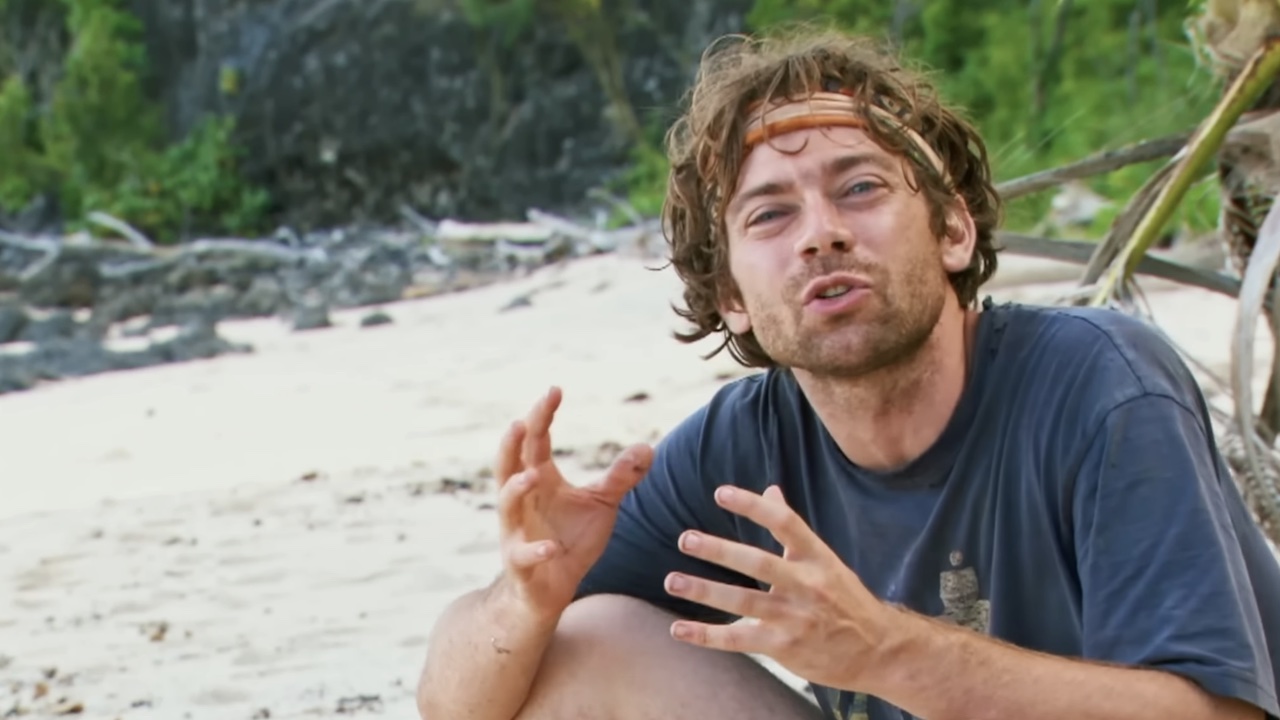Exclusive Interview: Thor's Tom Hiddleston Explains The Psychology Of Loki, Evolution For The Avengers

Loki, from the Marvel Universe, is simple one of the greatest comic book villains of all time. Also known as the God of Mischief, he is not only immensely powerful, but also completely psychotic and psychologically fascinating. Now, for the first time, Loki is being portrayed in a live-action feature film, and actor Tom Hiddleston captures every aspect perfectly.
In Thor, directed by Kenneth Branagh, Loki is the second son of Odin (Anthony Hopkins) and younger brother of the titular God of Thunder (Chris Hemsworth). On the day that Thor is meant to be crowned as the new king, an unprovoked attacked causes Thor’s aggression to get the better of him, leading to his banishment from Asgard. Loki, now the heir apparent, then prepares to be named as the new king himself, before uncovering a secret that has been hidden from him his entire life.
Fully examining and studying the mentality of such an incredible character, Hiddleston, in his preparation for the role, made sure to not only understand who Loki is, but who he is to become. Earlier today I had the privilege of sitting down with the actor one-on-one to discuss the many layers of his performance, both as it pertains to Thor, which is set to be released on Friday, and The Avengers, which he has confirmed to be involved with. Check out the interview below.
THIS IS KNOWN AS A SPOILER ALERT: While clearly marked below, this is where I tell you that some of my interview with Tom Hiddleston reveals information about Thor that you may not want to know prior to seeing the film. If you do not want certain parts of the movie ruined, please, for the love of Odin, do not read these sections. Thank you.
There’s so much secrecy around every project at Marvel Studios and we’re coming up on two years since you were first cast as Loki. How do you handle not being able to tell people details about what you’re doing?
[laughs] I quite simply don’t tell anyone. It’s very hard, because it’s just so exciting, and especially when you’re right in the middle of it. Exactly a year ago we’d finished – the main shoot for Thor was January to May 2010 – and I went back to London and I hadn’t seen my friends for six months. And they were like, “So how was it?” And I would say, “I can’t tell you other than the fact that it was awesome!”
So you didn’t even have a circle of trust that you could talk to?
Your Daily Blend of Entertainment News
I guess a few people I told. I told my mom and dad and my sisters and stuff. But it is hard, because you’re sort of brimful, like a time bomb or something. If I didn’t tell anyone about this stuff I’m going to explode.
Well, now with The Avengers you have even more time with that level of secrecy.
Yeah, yeah.
I know they started production last week, but have you been called down yet?
I’ve started my own preparation. I’ve read the shooting script and it’s absolutely wonderful. So much fun, and there’s a lot of juice to Loki as well – flavors we haven’t seen of him as well.

One thing that’s great about Loki and your performance in this film is that you’re never really certain when he’s being sincere and honest and when he’s being duplicitous and mischievous. Was that a gray area in your mind as well, or were you always sure of his motivations?
I really tried to plot it alongside Ken Branagh. It was one of the great joys of playing this part, actually. When I was on set with him, before we started work in the morning, we’d say, “So, in this bit does he even know he’s lying or as he tied a knot around his own brain as well as everybody else’s? I do think that the most brilliant psychopaths in human history have been like that. I’ve read stories about triple-cross spies in the Second World War who were re-recruited countless times and they survived. I think, then, what is true and what is false starts to blur in your own mind. I tried to keep a handle on it, actually, and I think that’s part of Loki’s brilliance, is his almost chess master’s intelligence, to think ten steps ahead of everybody else and to plan out eventualities. But the spanner in the works, I guess, is the big dark secret that he finds out halfway through the film from Odin, which I don’t want to spoil for anyone.
SPOILER ALERT
My sister is actually adopted, so I’ve actually learned quite a bit about the psychology in that department, which I feel that you, the writers and the filmmakers really nailed. Was that something you studied in preparation as well?
I did, actually. I did in the form of a brilliant book by a psychologist called Oliver James, called They Fuck You Up. Do you know Philip Larkin?
Yeah!
He wrote the poem called, “This Be The Verse.” The first stanza of this poem is,
They may not mean to, but they do.
They fill you with the faults they had
And add some extra, just for you.
You probably knew that, didn’t you? And Oliver James has taken the first line of that poem and written a book about, essentially, what he thinks is the victory of nurture over nature in the genesis and formation of their personality. He talks about twins growing up alongside each other, and various brilliant artists, like D.H. Lawrence and Mozart, who lost one parent early on, which creates a vacuum or a void, sort of spiritual vacuum that needs to be filled which needs to be filled with a huge amount of creative endeavors. And, essentially, he just uses lots of different examples to say who you become really is what happens to you when you’re younger. And that question, with regards to Loki, is fascinating – like his infancy, what happened on Jötunheim, what happens in Asgard, and sprinkle on to that cocktail his intelligence and inclination to mischief and you have one hell of a character.
END SPOILERS

Do you think that he was born with the mischief aspect of his personality or was that part of his nurturing as well?
You never know, I guess. I think mischief, in a way, I think a reason for it… I’m positive the reason for it, was that he has less responsibility. He’s the second son and like a lot of second, third, fourth children, they have a greater freedom. The first born has to carry the responsibility of inheriting the father and mum’s value system, and that’s Thor. Thor inherits Odin’s value system, and Loki is just a bit freer. He also - I haven’t got biceps the size of Chris Hemsworth’s biceps. There’s something about siblings as well, like, whatever your brother can do, your sibling can do, you want to define yourself in opposition to them. That’s what sibling rivalry is about. You’re really good at tennis, I am going to go and be really good at painting; and you can’t draw, and I can draw. So I think that’s how you get differences in values.
SPOILER ALERT
Do you think that Loki is aware of his malevolence, or is he entirely blinded by cognitive dissonance?
I genuinely think he’s in the right. It’s a really great question, man. There’s something intoxicating about emotional extremity, and I think that anyone who’s even gotten angry can feel that they’re coming up to a line which, if they cross, they can probably never come back from, and Ken and I wanted to leave it as late as possible that Loki crosses that line. I think it’s in the scene, once Thor comes back from Earth and I’m trying to destroy Jötunheim, I think he properly loses his mind. And he’s like, “I don’t care what you think of me anymore. This is what I’m going to do.” There’s a raging fire underneath Loki at that point. He just doesn’t care anymore. I do find that genuinely fascinating, the psychological aspect of being an actor, trying to understand why people do what they do. It’s a brilliant study.
END SPOILERS
There’s a great history of over-the-top, absolutely insane comic book villains, but your portrayal of Loki is so cool and subtle. By the end you do really get the sense that everything is building and building, so will we get to see the result of that evolution in The Avengers?
I think his motivations change. I think he cares less about… how do I say this without being assassinated? [laughs] I think he’s not so concerned with beating his brother anymore. I think he has bigger plans than just being bigger than his brother, I would say. And because his plans get bigger, the necessaries needed to defeat him, I think, need to be bigger.

Eric Eisenberg is the Assistant Managing Editor at CinemaBlend. After graduating Boston University and earning a bachelor’s degree in journalism, he took a part-time job as a staff writer for CinemaBlend, and after six months was offered the opportunity to move to Los Angeles and take on a newly created West Coast Editor position. Over a decade later, he's continuing to advance his interests and expertise. In addition to conducting filmmaker interviews and contributing to the news and feature content of the site, Eric also oversees the Movie Reviews section, writes the the weekend box office report (published Sundays), and is the site's resident Stephen King expert. He has two King-related columns.
